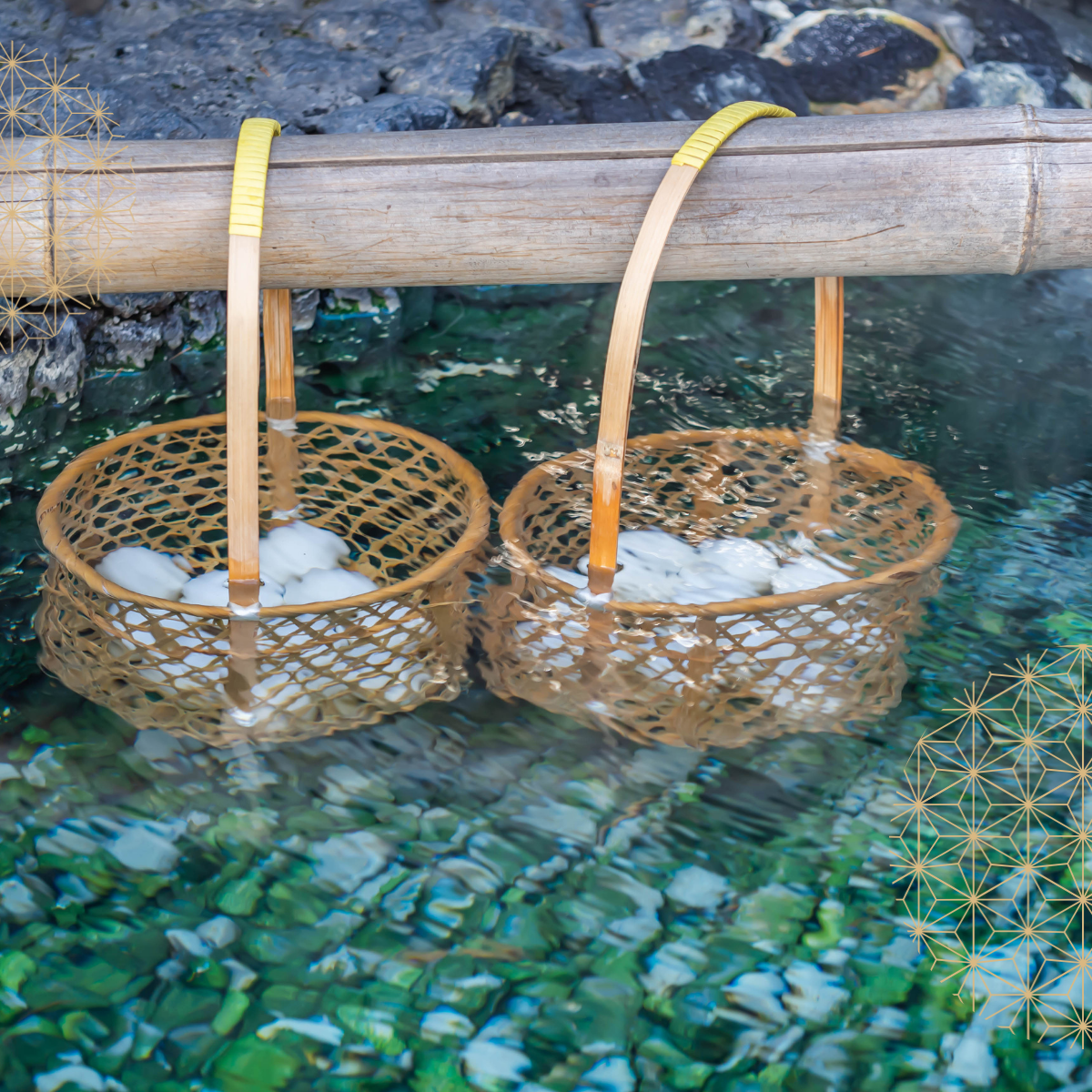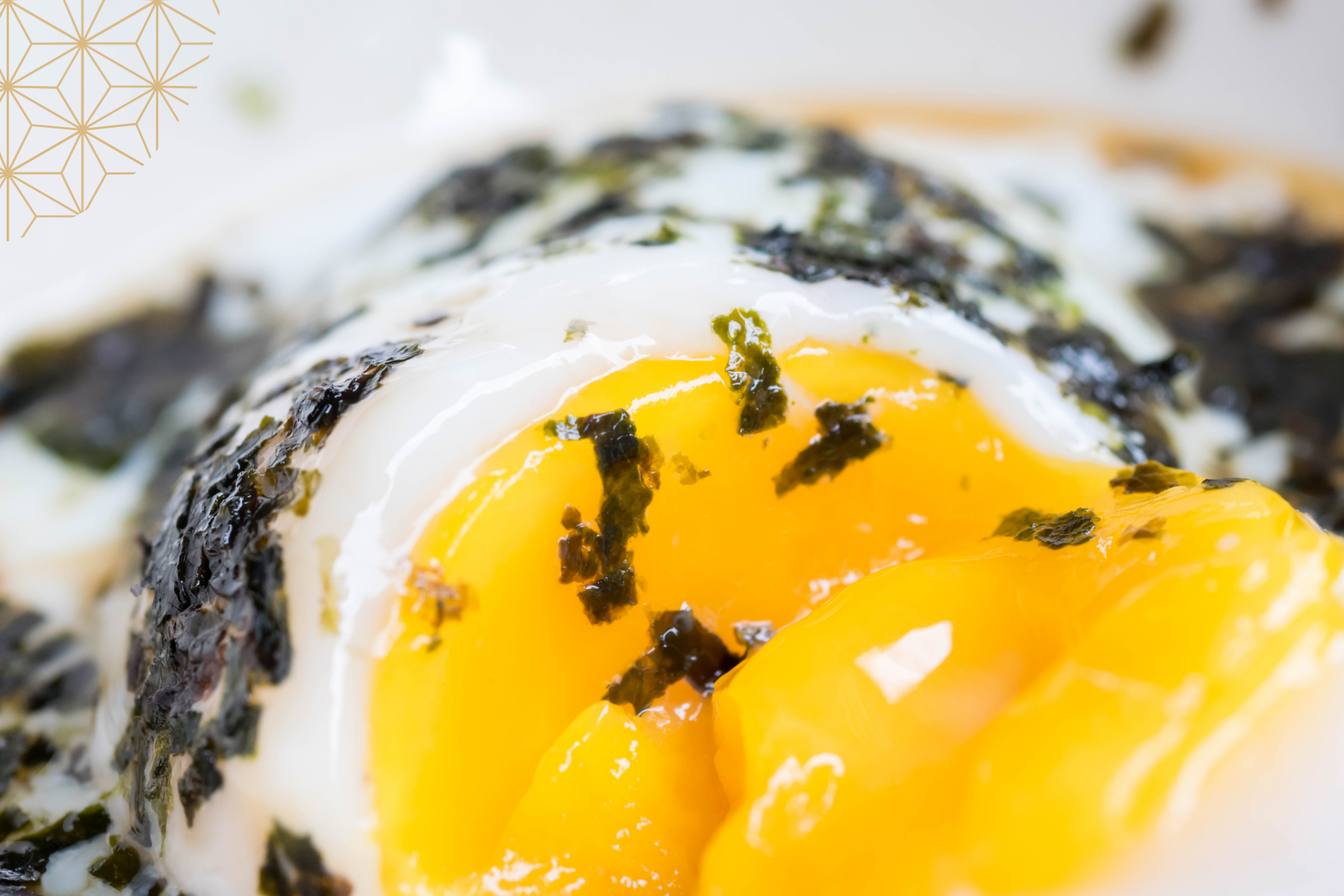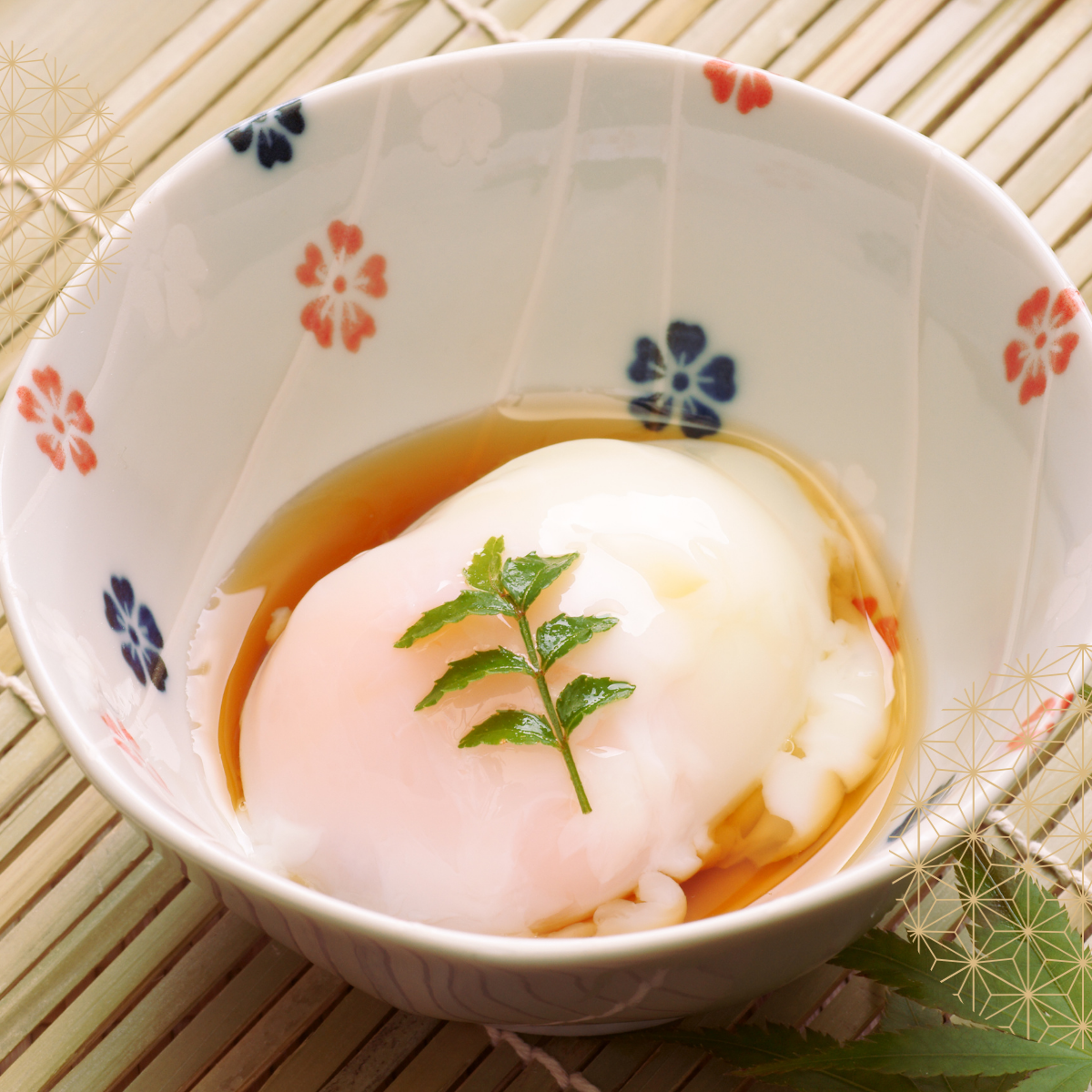Onsen Tamago – “The Longevity Egg” of the Japanese
Reflecting the philosophy of a balanced life, the combination of tradition, unique flavor, and health benefits has made Onsen Tamago an icon of the healthy lifestyle of the Japanese.

Slow-boiled at low temperatures
The yolk solidifies at around 65 degrees Celsius, with the white solidifying at about 70 degrees. With Onsen Tamago, the Japanese cleverly utilize this temperature difference by placing raw eggs in hot spring water ranging from 65 to 68 degrees. Onsen Tamago is slow-cooked at low temperatures, keeping the yolk half-boiled and the white soft, creating an exceptionally smooth and tender texture.

In contrast to ordinary soft-boiled eggs, Onsen Tamago has a softer white than the yolk.
Onsen Tamago at Yoko Onsen Quang Hanh
Each egg is carefully selected and boiled using natural Quang Hanh hot spring water rich in rare minerals for 70 minutes. The process seems to be simple but requires patience and skill to achieve the special Onsen Tamago. The eggs have a unique structure with a soft and smooth white instead of the usual firm texture, and the yolk, though dense, retains its color and rich flavor.
High nutritional content with direct absorption of nutrients from the rare natural mineral source makes it an ideal energy replenishment after an Onsen bath.

A nutrient-packed dish with preserved sterilizing enzymes
Thanks to slow cooking at low temperatures, Onsen Tamago retains the sterilizing enzyme "lysozyme." Lysozyme has natural sterilizing abilities, a versatile and powerful enzyme with anti-inflammatory and immune-regulating functions.
Onsen Tamago still preserves essential nutrients in eggs, such as protein, vitamins, and minerals. This makes it a nutritious and healthy food. Despite its simple preparation, its properties bring many health benefits, earning it the title of "The Longevity Egg"
Book NowOther posts:

Dự án đáng sống 2023 xướng danh Yoko Onsen Quang Hanh
Sáng 22/9, chương trình vinh danh “Dự án đáng sống” đã xướng tên khu nghỉ dưỡng tắm khoáng nóng Yoko Onsen Quang Hanh của Sun Group là “Khu nghỉ dưỡng…

The Secret of Rejuvenation Onsen
The Secret of Rejuvenation Onsen with formula 30 - 10 - 1 - 10. Experience the Onsen bathing process and feel the value of the hot spring's mineral-rich flow, where…









